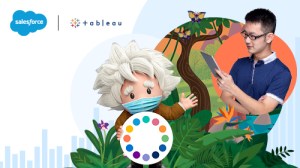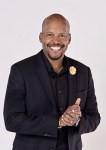Robert Wickham is Tableau’s Vice President Strategy & Growth, Asia Pacific & Japan. He leads a team of specialists throughout the region that helps customers transform their business using the Customer Success Platform.
Right now in business, we’re seeing a dramatic and growing performance divide between organisations that are data-driven and those that are not.
Data-driven companies have a considerable competitive advantage. They’re more likely to acquire and retain customers, uncover hidden opportunities, attract talented staff, and deliver seamless and connected experiences for their customers.
This is supported by research recently conducted in the Asia-Pacific region by Tableau and YouGov. It revealed that 82% of data-driven organisations believe data gives them a critical advantage.
The study confirmed that data allowed businesses to:
- Make strategic decisions faster
- Communicate more effectively with stakeholders
- Be more agile
These are all powerful advantages in a fast-changing environment. But it’s not enough to have data. The data must be presented as actionable insights and the user must be motivated to have their decisions informed by the data. The business advantages of data only become a reality within an organisation that truly embraces a data culture.
Salesforce + Tableau: Better Together
In companies with good data culture, every employee has access to the data they require to do their best work. This is possible when all departments are connected around a single, shared view of customer data.
Salesforce Customer 360 makes this possible. Customer 360, the world’s #1 CRM, offers best-in-class apps that unite every team — marketing, sales, commerce, service, and IT — around a single, shared view of customer data on an integrated platform. This enables teams to work together to build lasting, trusted relationships and deliver the personalised experiences their customers expect.
The world’s #1 CRM is truly supercharged when paired with Tableau, the world’s leading analytics platform. If data gives businesses a competitive edge, the combination of Salesforce and Tableau fuels high performance and drives impact.
Why is this?
Tableau brings analytics into the flow of business. It does this by unifying data from other sources as well as Salesforce into a single view. In doing so, it offers intelligent insights for informed business decisions. It allows people across the organisation to interact with and feel confident about the company’s real-time data feed.
Tableau’s user-friendly platform gives each team member insight into exactly what they need to make excellent decisions, every time. Importantly, when combined with Salesforce Customer 360, it powers up a single view of the customer by connecting data across various functions, including sales, service and marketing, offering entirely new insights into customer success.
Not only does Tableau help people see and understand data with its customisable, intuitive, and interactive dashboards, the AI function also reveals trends and patterns that were previously invisible.
The confidence that comes from this user-friendly platform is a vital part of its success. The best data analytics in the world will come to nothing if staff can’t, or don’t want to, use the software. In a data culture, this is not a problem.
Good data culture means great customer experience
To remain relevant and close to customers, and to deliver better outcomes for them, a business needs digital capabilities. The better its capabilities, including its data culture, the better the customer experience.
An excellent example is PLDT, which transformed from traditional telco to digital disruptor.
PLDT has dramatically boosted experience and engagement for its customers by transforming its internal operations through the use of Salesforce and Tableau.
These platforms are essential for its workforce to manage, engage, and collaborate more effectively.
Static spreadsheets are gone. In their place are rich, real-time data dashboards customised to the specific needs and workflows of individuals within the organisation. Historical reporting is exactly that – history. Teams have moved on to focus on future plans and strategy.
Having real-time data at their fingertips and presented in an easily digestible format means every decision by every staff member is informed by real-time market intelligence. Staff know exactly what is going on within the organisation, around the business, in the market, and in their customers’ individual journeys.
It all adds up to better business, outstanding agility, improved insight, and exceptional customer experience. The returns are many, including growth in individual customer value and customer numbers, highly satisfied customers, greater brand loyalty, more engaged team members, and a high-tech workplace that attracts talent.
When businesses adopt digital technology and use data to inform decisions, they develop a distinct competitive advantage. When businesses combine the power of Salesforce, the insight of Tableau, and a healthy data culture, there is no limit to their success.
Watch our on-demand webinar to learn more about how Salesforce and Tableau can supercharge growth for your business.


















![[Illustration] An AI agent provides B2B customer service](https://www.salesforce.com/ap/blog/wp-content/uploads/sites/8/2024/12/B2B-AI-Agents-1680x1120-1.jpg?w=150&h=150&crop=1&quality=75)


